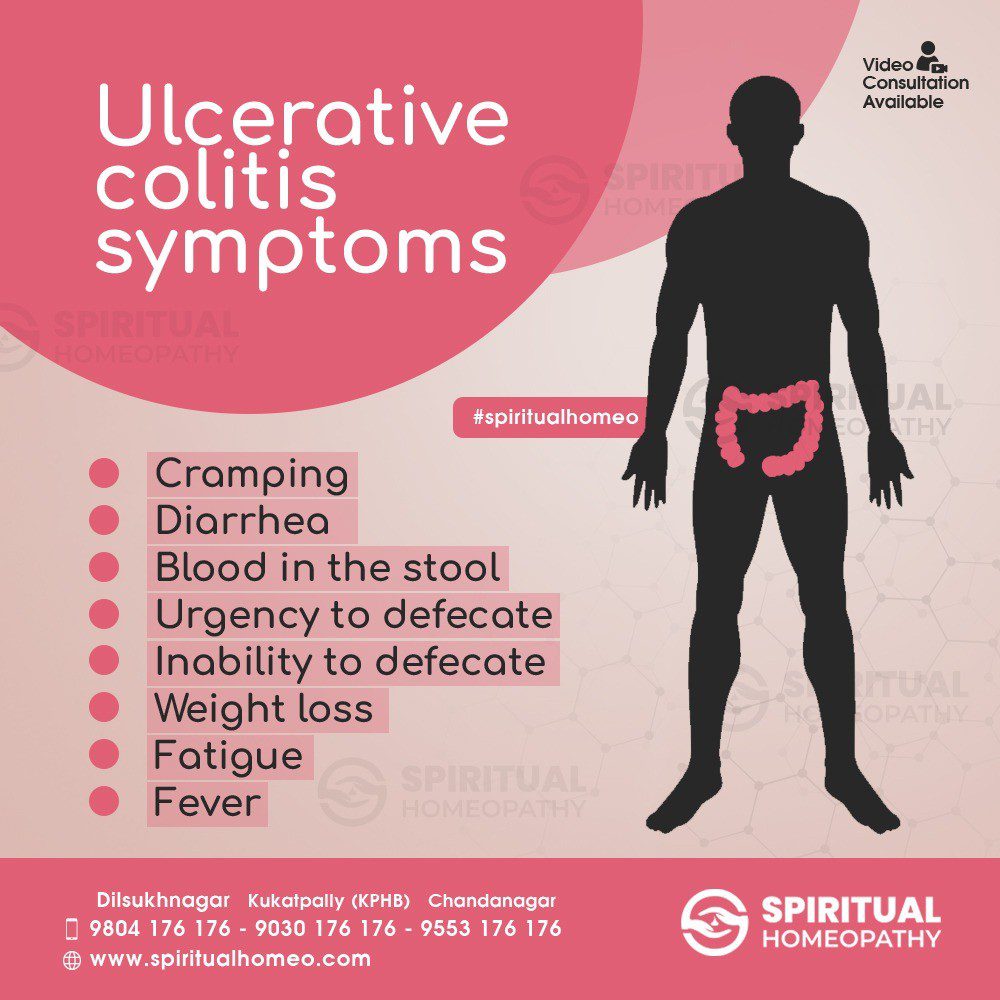Ulcerative colitis is a chronic inflammatory bowel disease (IBD) that primarily affects the colon (large intestine) and rectum. It is characterized by inflammation and ulcers in the inner lining of the colon and can lead to a range of gastrointestinal symptoms and complications. Here are some key points about ulcerative colitis:
Causes: The exact cause of ulcerative colitis is not known, but it is believed to involve a combination of genetic, environmental, and immune system factors. It is an autoimmune disorder, meaning the immune system mistakenly attacks the lining of the colon, leading to inflammation.
Symptoms: Symptoms of ulcerative colitis can vary in severity and may include:
- Diarrhea: Frequent, loose, and bloody stools are common.
- Abdominal Pain and Cramping: Individuals may experience abdominal discomfort and cramps, often relieved by having a bowel movement.
- Rectal Bleeding: Blood in the stool or on toilet tissue is a common symptom.
- Urgency: A strong and sudden urge to have a bowel movement.
- Fatigue: Many people with ulcerative colitis experience fatigue and a general feeling of being unwell.
- Weight Loss: Ongoing symptoms can lead to weight loss and malnutrition.
- Loss of Appetite: Reduced appetite and difficulty in eating may occur.
- Fever: Some individuals may have a fever during flare-ups.
Types of Ulcerative Colitis:
- Ulcerative Proctitis: Limited to the rectum and may cause rectal bleeding and urgency.
- Left-Sided Colitis: Involves the left side of the colon, leading to symptoms like abdominal pain and diarrhea.
- Pancolitis: Affects the entire colon, resulting in severe symptoms.
- Fulminant Colitis: A rare and severe form that can lead to life-threatening complications.
Complications: Ulcerative colitis can lead to several complications, including:
- Toxic Megacolon: Severe inflammation can cause the colon to expand and become at risk of rupture.
- Colorectal Cancer: People with long-standing ulcerative colitis have an increased risk of developing colorectal cancer, especially if the entire colon is affected.
- Perforations: The inflamed colon can become weakened and perforate, leading to peritonitis (inflammation of the abdominal cavity lining).
- Malnutrition: Chronic inflammation and diarrhea can lead to malnutrition and nutrient deficiencies.
- Osteoporosis: Reduced nutrient absorption can result in weakened bones.
- Anemia: Chronic bleeding can lead to anemia (low red blood cell count).
Diagnosis: Diagnosis typically involves a combination of medical history, physical examination, blood tests, stool tests, colonoscopy, and imaging studies.
Treatment: Treatment aims to control symptoms, induce and maintain remission, and improve quality of life.
Ulcerative colitis is a chronic condition that requires ongoing management. People with ulcerative colitis often work closely with healthcare teams to develop a personalized treatment plan and lifestyle modifications to manage their symptoms and minimize the risk of complications.
Book an Appointment
Take the first step towards better health with Spiritual Homeopathy Clinics with best homeopathy doctors in Hyderabad
Call Us:
- KPHB: 9030 176 176
- Chandanagar: 9804 176 176
- Dilsukhnagar: 9553 176 176
Enjoy the convenience of online consultations. Book your appointment through our mobile app, available on the Play Store and App Store under the name “Spiritual Homeopathy.”
Start your journey to holistic healing today. Book your appointment now!



